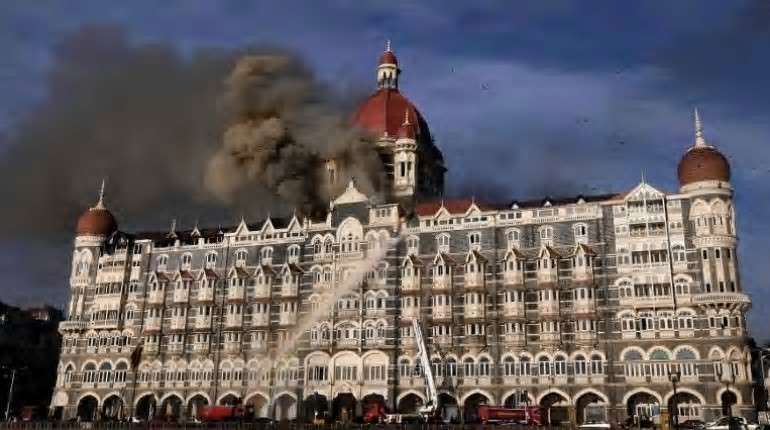
SOURCE: WION
Asserting that their stand against Pakistan sponsored terrorism, two prominent Members of European Parliament (MEP) wrote to Pakistan Prime Minister Imran Khan, condemning Islamabad for not yet having brought to justice those who orchestrated the 2008 Mumbai terror attack.
In a letter to Khan on November 24, Polish MEP Ryszard Czarnecki and Italian MEP Fulvio Martusciello requested to know what action has Pakistan “taken against Lashkar-e-Taiba, the terrorist organisation, based in Pakistan, known to have carried out the multiple shooting and bombing attacks that happened in Mumbai in 2008?”
They further asked, “What action has, and is, Pakistan taking against terrorist groups operating within the country in general?”
On November 26, 2008, ten terrorists trained by the Pakistan-based terrorist organisation Lashkar-e-Tayyiba (LeT) carried out a series of coordinated attacks against multiple targets in Mumbai including the Taj Mahal hotel, the Oberoi hotel, the Leopold Cafe, the Nariman (Chabad) House, and the Chhatrapati Shivaji Terminus train station, killing 166 people.
In these gruesome attacks, nine terrorists were killed and the lone survivor, Ajmal Amir Kasab, was caught and was sentenced to death at Yerwada Central Jail in Pune in 2012. On November 11, 2012, Kasab was hanged in Yerawada Jail in Pune.
Pakistani authorities continue to deny culpability and are yet to take action on the multiple dossiers shared by India. A trial underway in a Pakistani anti-terrorism court against seven suspects has made little headway in more than a decade, as Pakistani officials serially question the sufficiency and legitimacy of evidence against them.
In a reminder to Khan, a Prime Minister who delivered a eulogy to Osama Bin Laden, hailing him as a “martyr” in May this year, the two MEPs said: “Terrorism is the unlawful use of violence and intimidation, especially against civilians, often in pursuit of political or ideological aims,” EU Chronicle reported.
They added that as “European politicians, we are committed to fighting against terrorism and extremist violence. We all have a responsibility to condemn terrorism and bring to justice those who perpetrate such actions.”
Czarnecki and Martusciello highlighted in their letter to Khan: “On 26 November 2008, an extremist terrorist organisation, Lashkar-e-Taiba, based in the Islamic Republic of Pakistan, claimed responsibility for the Mumbai bombings in which 166 innocent people were murdered, nine attackers killed, and more than 300 individuals sustained injuries.”
“Subsequent documented evidence from United States intelligence reports, from India’s intelligence services including DNA, photographs and identification of the origins of the attackers; and an admission by Pakistan’s former Prime Minister Nawaz Sharif’s of the country’s involvement in the crimes; highlight the engagement of accomplishes in Pakistan. However, to date, the senior coordinators and promoters who orchestrated the attacks remain at large,” he added.
As Europe also suffers from the impacts of horrific acts of increasingly radical and extremist jihadi attacks, the politicians said it was “essential that justice is served on those who have carried out, instructed or supported such terrorist activities. It is equally important that leaders of countries publicly condemn these acts of violence and proceed to ensure justice is done for the victims, by apprehending and sentencing the perpetrators.”






